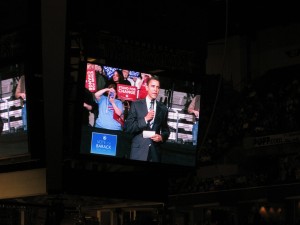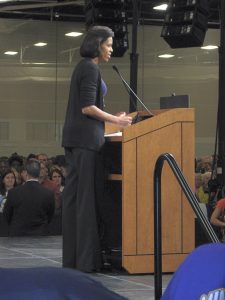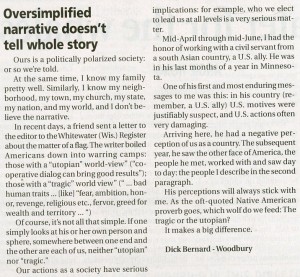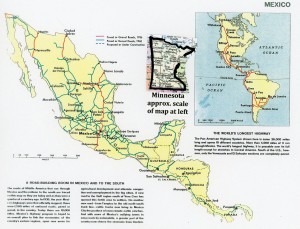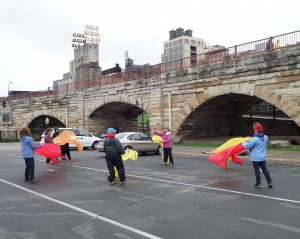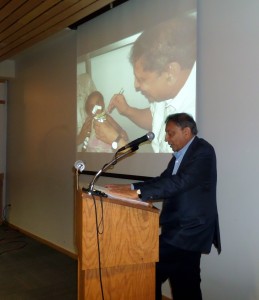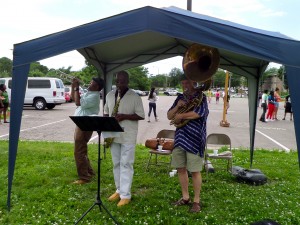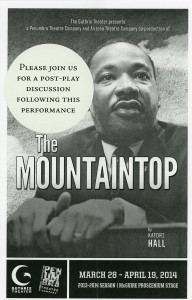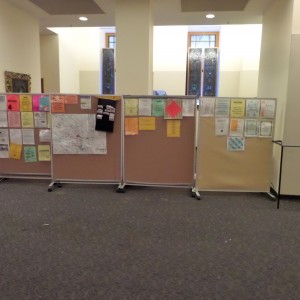#1202 – Dick Bernard: President Barack Obama
POSTNOTE: Here is President Obama’s farewell address.
I remember, this evening, two events:
1. The day I first heard then Sen. Barack Obama speak at Target Center in Minneapolis MN, Feb 2, 2008
(click to enlarge)
2. The day we heard Michelle Obama speak powerfully at Macalester College in St. Paul MN October 13, 2008. I specifically remember the call to the students “cell phones up!” – an organizing technique I did not know about. It was a powerful afternoon.
Tonight in Chicago President Obama will give his farewell address to the nation. I will watch it in its entirety.
It will speak for itself.
*
After the speech:
I wrote down a single quote near the end of a remarkable speech by the President of the United States: “the most important office in a democracy: citizen”
It is no secret to anyone who knows me: after seeing Barack Obama in Minneapolis in early February, 2008, a few days later, at the precinct caucus at Oak-Land Junior High School in Lake Elmo, I wrote “Hillary Clinton” as my own presidential preference for 2008. I thought she had more experience for the hardest job in the world.
But I was impressed with this U.S. Senator from Illinois.
In my opinion, President Obama under the light of history will go down as one of our greatest and most transformative presidents. He and his family are, and will continue to be, class acts.
Tonight he passed the baton to all of we citizens. The ball is in our court, as it has always been. We get what we choose by our own action…or inaction.
Organizers, which President Obama is, know that change is never easy. There are always bumps in the road. But progress continues so long as people have the courage to witness.
RELATED POST: December 6. There will be other related posts at this space in coming days. Check back.
POSTNOTE: Overnite, from Just Above Sunset, here.
SOME BRIEF ADDITIONAL THOUGHTS:
Those who know me well, know that I admire President Obama as being a classic community organizer. Of course, this trait of the president was derided, and is still not understood, by ideologues and purists of all stripes. To be an organizer is to be a wimp, ineffective….
More by accident than anything else, most of my work career would be defined as organizer. More or less, my assignments were to groups which were approximately 1,000 people, organized into subgroups, and having to deal with other outside groups.
I’d say I deserve at least journeyman status in organizing, from experience more than anything, but anyone who has ever been an organizer knows that you are dealing with a very imperfect whole, and you are constantly looking for ways to make small nicks in the existing status quo for each and every individual and subgroup within your jurisdiction. To attempt to ignore some constituency, however irrelevant it may seem, is dangerous. And you really have no “power” as such. This includes the President of the United States, whoever he (hopefully soon, she) might be, whether he’s an organizer or not.
An organizers job is reality based, and is truly a game of inches.
Idealists, on the other hand, of whatever stripe they might be, follow the “birds of a feather flock together” rule. If you associate only with the like-minded, your view of reality is impeded, and your influence minimized.
Sometimes, often, emotion intrudes, overwhelming reason or anything else that makes sense. The body politic, whether in some small committee in a church somewhere, or the United States of America, makes a stupid decision that they will come to regret. But at the time the decision is made, they are satisfied with their shortsightedness.
Perhaps President Trump will be a brilliant statesman and bring peace and prosperity to all.
It is not likely.
He doesn’t come from a collaborative background. Anyone who watches TV knows him very well, and his base of support also.
We shall see.
POSTNOTE: Here’s the talk given by VP Joe Biden Jan. 12, 2017 after receiving the Presidential Medal of Freedom.

